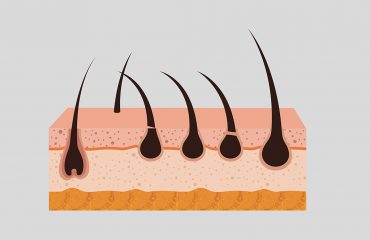We established a competition for the best original scientific paper accepted for publication in our journal, Gender and the Genome, to encourage the receipt of high quality original studies for publication. The entries were required to have included gender as a variable in their research protocols, thus assessing the relevance of sex and gender to the findings. We were rewarded with entries of exceptional quality on a diversity of topics.
The blue-ribbon panel that judged the three finalists in the competition unanimously and independently chose the winning paper, “Estrogen Stimulation Differentially Impacts Human Male and Female Antigen-Specific T Cell Anti-Tumor Function and Polyfunctionality” by Doctor Stephanie Watkins and PhD candidate Flora Navarro at Loyola University Chicago. Their comments and pictures appear below.
We also would like to acknowledge the generosity of Mr. Robert Birch, who made the award possible. He has been a consistently generous supporter of the Foundation’s work and has been invaluable in supporting young scientists’ interest in the relevance of biological sex/gender to human function. Mr. Birch’s philanthropy supports a wide variety of institutions and programs and the Foundation is profoundly grateful for his guidance, generosity and involvement in our work.
–Marianne J. Legato, M.D., President, Founder and Director, The Foundation for Gender-Specific Medicine
The 2018 Robert S. Birch Award Recipients

“I would like to thank Mr. Robert Birch and The Foundation for Gender-Specific Medicine for recognizing our work. Starting out as a researcher in immunology, it was my goal to enhance treatments for cancer. Recognizing that inducing an anti-tumor immune response is similar to the immune responses observed in autoimmunity, we began studying the interaction between dendritic cells and T cells. Next, we realized that women are significantly more prone to autoimmune disease whereas men tend to have higher incidence and higher mortality rates when it comes to most cancers. Therefore, we sought to identify the key differences in the immune system that regulate these diseases. By understanding the intracellular signaling mechanisms, we will be able to improve treatments for both men and women in cancer and autoimmunity.
Our first study on human T cells from males and females published in Gender and the Genome details many functional differences between male and female T cells upon activation. Our next study, currently underway, demonstrates the change in function in vivo, in the tumor microenvironment.
Being selected for this award is truly an honor. I intend to use the funds to further our studies in gender specific immune responses by applying it to pilot studies we are planning to investigate gender-specific features of cellular metabolism. We look forward to continuing to present our work for publication in Gender and the Genome.

“I was beyond happy to learn that our article, “Estrogen Stimulation Differentially Impacts Human Male and Female Antigen-Specific T Cell Anti-Tumor Function and Polyfunctionality” was the recipient of the Robert S. Birch Award. I would like to thank Mr. Robert S. Birch, Gender and the Genome, and The Foundation for Gender-Specific Medicine for selecting and recognizing our work.
As a fourth year Ph.D. candidate at Loyola University in Chicago, it is such an honor to receive this prestigious award so early in my scientific career—which means a huge step toward completing my dissertation work, publishing my results, and increasing the output of quality of work in my laboratory— making it more notable in the scientific community. Moreover, it will also help me to establish myself more successfully in my scientific field, and to start my career as an academic post-doctoral fellow after the completion of my Ph.D.
Since I started my Ph.D. in 2014, I have been studying sex-specific differences in tumor immunology with an emphasis on the effect of sex and sex hormone signaling on T cells for immunotherapy. Despite a slight increase in the literature, immunology still ranks very low for reporting the sex of animal or human subjects in publications, with fewer than 10% of articles analyzing data by sex. I believe that it is increasingly important to acknowledge sex differences in immune responses when we consider the marked differences seen between males and females in diseases such as cancer, infections and autoimmunity. Now that immunotherapy has been shown to be efficacious against several solid tumors and hematopoietic malignancies and it is used as a cancer treatment around the world, I believe it is highly important to study the differences in efficacy, tumor destruction, and relapse in males versus females during and after immunotherapy. This will allow the identification of specific pathways that can be targeted to improve therapies in both male and female patients.
In the future, this research can hopefully benefit the treatment of many other diseases and not just cancer since sex differences are global and can be extensively studied in different fields.
I look forward to continuing to publish in Gender and the Genome and collaborating with The Foundation for Gender-Specific Medicine.”
Marianne J. Legato, MD, Ph. D. (hon. c.), FACP is an internationally renowned academic, physician, author, lecturer, and pioneer in the field of gender-specific medicine. She is a Professor Emerita of Clinical Medicine at Columbia University College of Physicians & Surgeons and an Adjunct Professor of Medicine at Johns Hopkins Medical School. Dr. Legato is also the Director of the Foundation for Gender-Specific Medicine, which she founded in 2006 as a continuation of her work with The Partnership for Gender-Specific Medicine at Columbia University. She received an honorary PhD from the University of Panama in 2015 for her work on the differences between men and women.
At its core, gender-specific medicine is the science of how normal human biology differs between men and women and how the diagnosis and treatment of disease differs as a function of gender. Dr. Legato’s discoveries and those of her colleagues have led to a personalization of medicine that assists doctors worldwide in understanding the difference in normal function of men and women and in their sex-specific experiences of the same diseases.
She began her work in gender-specific medicine by authoring the first book on women and heart disease, The Female Heart: The Truth About Women and Coronary Artery Disease, which won the Blakeslee Award of the American Heart Association in 1992. Because of this research, the cardiovascular community began to include women in clinical trials affirming the fact that the risk factors, symptoms, and treatment of the same disease can be significantly different between the sexes. Convinced that the sex-specific differences in coronary artery disease were not unique, Dr. Legato began a wide-ranging survey of all medical specialties and in 2004, published the first textbook on gender-specific medicine, The Principles of Gender-Specific Medicine. The second edition appeared in 2010 and the third edition, dedicated to explaining how gender impacts biomedical investigation in the genomic era, won the PROSE Award in Clinical Medicine from the Association of American Publishers in 2018. A fourth edition is forthcoming.
She also founded the first scientific journals publishing new studies in the field, The Journal of Gender-Specific Medicine, and a newer version, Gender Medicine, both listed in the Index Medicus of the National Library of Medicine. She has founded a third peer-reviewed, open access journal, Gender and the Genome, which focuses on the impact of biological sex on technology and its effects on human life.
Dr. Legato is the author of multiple works, including: What Women Need to Know (Simon & Schuster, 1997), Eve’s Rib (Harmony Books, 2002), Why Men Never Remember and Women Never Forget (Rodale, 2005), Why Men Die First (Palgrave, 2008), The International Society for Gender Medicine: History and Highlights (Academic Press, 2017), and most recently, The Plasticity of Sex (Academic Press, 2020). Her books have been translated into 28 languages to date.
As an internationally respected authority on gender medicine, Dr. Legato has chaired symposia and made keynote addresses to world congresses in gender-specific medicine in Berlin, Israel, Italy, Japan, Panama, South Korea, Stockholm, and Vienna. In collaboration with the Menarini Foundation, she is co-chairing a symposium on epigenetics, Sex, Gender and Epigenetics: From Molecule to Bedside, to be held in Spring 2021 in Italy. She maintains one of the only gender-specific private practice in New York City, and she has earned recognition as one of the “Top Doctors in New York.”





